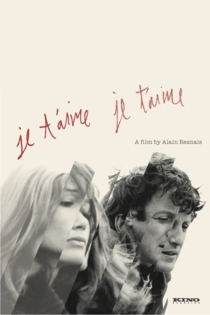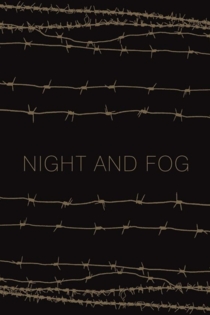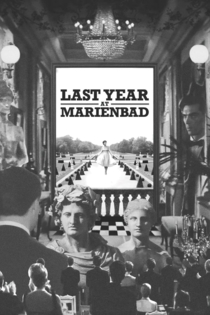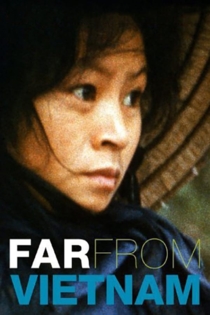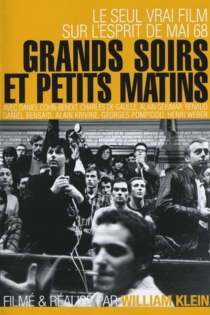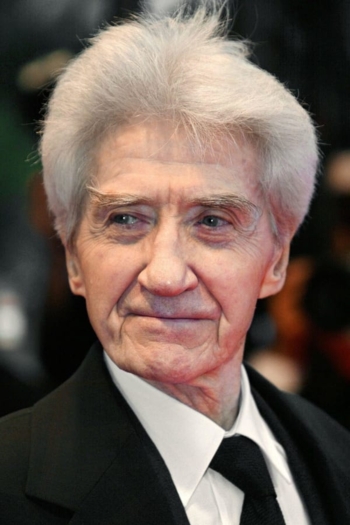
Alain Resnais
1922 - 2014Resnais began making feature films in the late 1950s and consolidated his early reputation with Hiroshima mon amour (1959), Last Year at Marienbad (1961), and Muriel (1963), all of which adopted unconventional narrative techniques to deal with themes of troubled memory and the imagined past. These films were contemporary with, and associated with, the French New Wave (la nouvelle vague), though Resnais did not regard himself as being fully part of that movement. He had closer links to the "Left Bank" group of authors and filmmakers who shared a commitment to modernism and an interest in left-wing politics. He also established a regular practice of working on his films in collaboration with writers previously unconnected with the cinema such as Jean Cayrol, Marguerite Duras, Alain Robbe-Grillet, Jorge Semprún and Jacques Sternberg.
In later films, Resnais moved away from the overtly political topics of some previous works and developed his interests in an interaction between cinema and other cultural forms, including theatre, music, and comic books. This led to imaginative adaptations of plays by Alan Ayckbourn, Henri Bernstein and Jean Anouilh, as well as films featuring various kinds of popular song.
His films frequently explore the relationship between consciousness, memory, and the imagination, and he was noted for devising innovative formal structures for his narratives. Throughout his career, he won many awards from international film festivals and academies.
Description above from the Wikipedia article Alain Resnais, licensed under CC-BY-SA, full list of contributors on Wikipedia.
Hiroshima Mon Amour
Alain Resnais
Emmanuelle Riva, Eiji Okada
The deep conversation between a Japanese architect and a French actress forms the basis of this celebrated French film, considered one of the vanguard productions of the French New Wave. Set in Hiroshima after the end of World War II, the couple -- lovers turned friends -- recount, over many hours, previous romances and life experiences. The two intertwine their stories about the past with pondering the devastation wrought by the atomic bomb dropped on the city.
Hiroshima Mon Amour
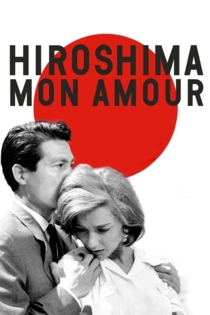
Le Joli Mai
Chris Marker, Pierre Lhomme
Yves Montand, Chris Marker
Candid interviews of ordinary people on the meaning of happiness, an often amorphous and inarticulable notion that evokes more basic and fundamentally egalitarian ideals of self-betterment, prosperity, tolerance, economic opportunity, and freedom.
The Lovely Month of May
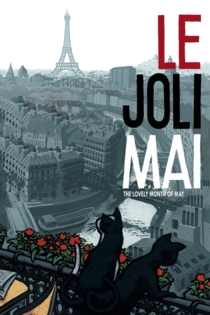
Toute la mémoire du monde
Alain Resnais
Jacques Dumesnil
Toute la mémoire du monde is a documentary about the Bibliothèque Nationale in Paris. It presents the building, with its processes of cataloguing and preserving all sorts of printed material, as both a monument of cultural memory and as a monstrous, alien being.
All the World's Memory
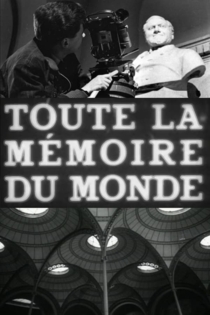
My American Uncle
Alain Resnais
Gérard Depardieu, Nicole Garcia
Prof. Henri Laborit uses the stories of the lives of three people to discuss behaviorist theories of survival, combat, rewards and punishment, and anxiety. René is a technical manager at a textile factory and must face the anxiety caused by corporate downsizing. Janine is a self-educated actress/stylist who learns that the wife of her lover is dying and must decide to let them reunite. Jean is a controversial career-climbing writer/politician at a crossroads in life.
My American Uncle
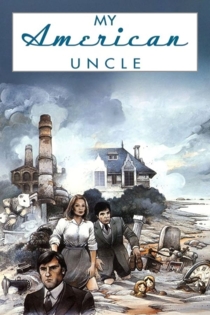
Les statues meurent aussi
Chris Marker, Ghislain Cloquet
Jean Négroni
Short documentary ordered by the magazine "Présence Africaine". From the question "Why is the african in the Human museum while Greek or Egyptian art are in Le Louvre?", the two directors expose and criticise the lack of consideration for African art. The film was censored in France for eight years because of its anti-colonial perspective.
Statues Also Die
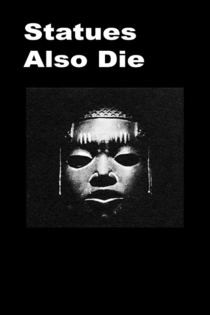
Providence
Alain Resnais
Dirk Bogarde, David Warner
On the eve of his 78th birthday, the ailing, alcoholic writer Clive Langham spends a painful and sleepless night mentally composing and recomposing scenes for a novel in which characters based on his own family are shaped by his fantasies and memories, alongside his caustic commentary on their behaviour.
Providence
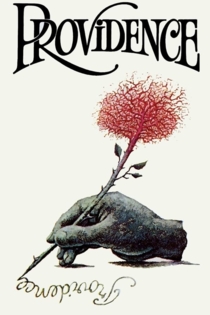
On connaît la chanson
Alain Resnais
Pierre Arditi, Sabine Azéma
Odile is a business executive looking for a new, bigger apartment. Her younger sister Camille has just completed her doctoral thesis in history and is a Paris tour guide. Simon is a regular on Camille's tours because he's attracted to her. Camille has fallen for Marc, and they begin an affair. Nicolas is also looking for an apartment, since he hopes to eventually have his family join him in Paris.
Same Old Song
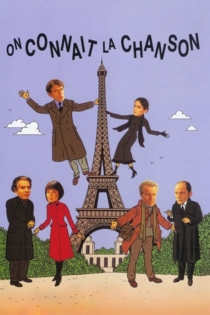
Smoking / No Smoking
Alain Resnais
Sabine Azéma, Pierre Arditi
"Smoking" and "No Smoking" are two segments of the film which are based on closely connected plays. The original plays covered eight separate stories, which have been pared down to three each for these movies. At a certain point in the story of each segment, the five female characters (all played by Sabine Azema) and the four male characters (all played by Pierre Arditi) have their lives skillfully recapped in terms of "what might have happened" if they had made or failed to make certain choices. For example, "No Smoking" focuses chiefly on the relationship between the mild-mannered Miles Coombes and his infinitely more aggressive and ambitious wife, Rowena.
Smoking / No Smoking
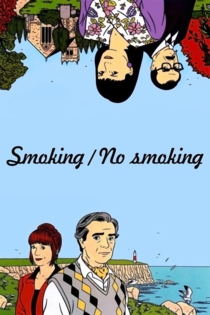
La guerre est finie
Alain Resnais
Yves Montand, Ingrid Thulin
Diego is one of the chiefs of the Spanish Communist Party. On his way from Madrid to Paris, he is arrested at the border for an ID check but manages to get free. When he arrives in Paris, he starts searching for one of his comrade to prevent him from going to Madrid where he could be arrested.
The War Is Over
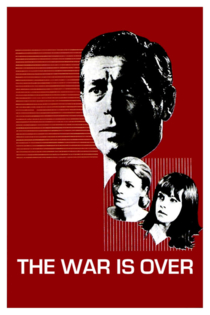
Mélo
Alain Resnais
Sabine Azéma, Fanny Ardant
Pierre Belcroix and Marcel Blanc are violinists and lifelong friends living in Paris in the 1920s. While Marcel has become famous and Pierre has not, both are happy with their lives. Pierre is happily married to Romaine, a stylish young flapper. However, Marcel meets and falls in love with her, which Marcel little suspects.
Mélo
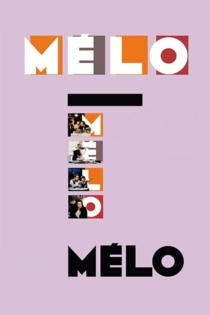
Je T'Aime, Je T'Aime
Alain Resnais
Claude Rich, Olga Georges-Picot
Recovering from an attempted suicide, a man is selected to participate in a time travel experiment that has only been tested on mice. A malfunction in the experiment causes the man to experience moments from his past in a random order.
Je T'Aime, Je T'Aime
